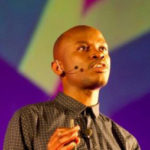Artificial Intelligence and Human Rights
Video Description
As the uses of artificial intelligence grow exponentially each year, there is a possible future where AI exacerbates injustice, deepens societal divides, and becomes a tool to violate or deny human rights. But, there’s another “possible”—where AI is used to bolster solutions to difficult challenges. Hear from innovators who are exploring the risks, and the power of artificial intelligence and machine learning to accelerate positive change.
Speakers
-
Director, Amnesty Tech, Amnesty International
Tanya co-founded and directs Amnesty International's global technology and human rights programme. Amnesty Tech undertakes investigations, campaigns and advocacy in relation to the human rights impacts of new and frontier technologies, whilst simultaneously investing in and pioneering new technologies, tools and tactics to benefit the human rights movement.
-

CEO shift7; Former US CTO, shift7
Megan Smith is an award-winning entrepreneur, engineer, and tech evangelist. She recently created shift7, a company driving tech-forward innovation for faster, scaled impact. Smith served as the third U.S. chief technology officer from 2014-2017 helping the President and his teams harness the power of data, innovation and technology on behalf of the nation. Smith recruited top tech talent to serve across government collaborating on pressing issues, from data science, AI and open source, to inclusive economic growth and criminal justice reform. Her teams focused on broad capacity building by co-creating all-hands-on-deck initiatives, including the public-private program TechHire, the Computer Science for All initiative, and the Image of STEM campaigns.
Smith was vice president at Google for eleven years leading new business development where she managed early-stage partnerships, pilot explorations and technology licensing across the global engineering and product teams; she led acquisitions of Google Earth, Maps, and Picasa; and later was a VP at Google[x] where she co-created SolveForX and Women Techmakers. Earlier, Smith served as CEO of PlanetOut, worked on early smartphone technologies at General Magic and at Apple Japan. Smith is an advisor to the MIT Media Lab, Vital Voices, Thinkof-Us, the Malala Fund, which she co-founded and is a member of the National Academy of Engineering. She was selected as a World Economic Forum Technology Pioneer. She holds bachelor’s and master’s degrees in mechanical engineering from MIT, where she serves on the board as a life member. She completed her master’s thesis work at the MIT Media Lab.
-
World-class social innovator. Safe housing advocate. Bricklayer. Dr. Elizabeth Hausler is the Founder and CEO of Build Change and a global expert on resilient housing, post-disaster reconstruction, and systems change. Elizabeth’s strategic direction and leadership have grown Build Change from a few employees in 2004 to a global team spread across five continents. She is the recipient of many honors, and in 2011, was named the US Social Entrepreneur of the Year by the Schwab Foundation. Together with Build Change, she was awarded the 2017 Skoll Award for Social Entrepreneurship. In 2018, she received the University of California, Berkeley’s Campanile Excellence in Achievement Award. Elizabeth is also an Ashoka Fellow, a Draper Richards Kaplan Fellow, and an Echoing Green Fellow. Dr. Hausler has headlined top conferences, lectured at eminent universities, and been featured in media outlets including The New York Times, BBC News, Forbes, Elle Magazine, ABC News, and Bloomberg Business.
-

Managing Director, Business for Social Responsibility
Dunstan oversees BSR’s human rights, women’s empowerment, and inclusive economy practices.
Previously, Dunstan led BSR’s information and communications technology and heavy manufacturing practices.
He brings significant experience working in North America, EMEA, and Asia on a diverse range of issues such as technology and human rights, privacy and freedom of expression, sustainability reporting, sustainability strategy, and stakeholder engagement.
In recent years Dunstan has been focused on the intersection of disruptive technology and human rights, and in 2018 published three papers on the importance of taking a rights-based approach to artificial intelligence. Dunstan has worked with companies such as Facebook, Google, Cisco, Microsoft, BT, Telenor, Telia, and AT&T on technology and human rights.
Dunstan facilitated the multistakeholder process of developing global principles on freedom of expression and privacy, which led to the launch of the Global Network Initiative in October 2008. He also helped create the Electronic Industry Citizenship Coalition, a collaborative initiative of more than 100 ICT companies improving conditions in their supply chains.
Dunstan participated in the process of creating the Global Reporting Initiative G3 guidelines, and is a regular commentator on issues of corporate accountability, reporting, and human rights.
He also co-authored the 2010 book, Big Business, Big Responsibilities. Prior to joining BSR in 2004, Dunstan was part of British Telecommunications' corporate responsibility team.
Dunstan has an M.Prof. in Sustainable Development from Forum for the Future.
-
Artificial Intelligence Evangelist, Individual
When I'm not formulating strategy to grow products in emerging markets I write and speak on technology and I make things with Artificial Intelligence.
I have a strong passion for fresh new ideas that will change the lives of those around me and I am a firm believer that Artificial Intelligence is on the brink of shaping the technological zeitgeist worldwide.




